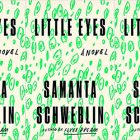The Lyricism of Mundane Grief in Joy Enough and The Long Goodbye

“Our mothers are our first homes, and that’s why we’re always trying to return to them,” writes Michelle Filgate in her essay “What My Mother and I Don’t Talk About.” But when a mother dies, leaving her child without the home of her love, that task of returning is supplanted by the task of grieving. Grief, then, becomes the new home.
Recently I picked up Sarah McColl’s Joy Enough, a wrenching meditation on the process of untangling yourself from the person you love most once you lose her. “I loved my mother, and she died. Is that a story?” McColl begins, implicitly asking whether it’s loss or healing that drives the engine of a story. McColl, at least, believes the answer to her question is yes: loving and losing her mother to cancer is not only a story, but the central story of her life.
Eight years earlier, poet Meghan O’Rourke tried, in her memoir, The Long Goodbye, to answer another question about her mother’s death: whether the bereaved can communicate with those whose lives are unmarked by recent loss. “If the condition of grief is nearly universal, its transactions are exquisitely personal,” she writes. It looks different, and feels unique, to each mourner. While her own mother died, also of cancer, O’Rourke, just like McColl, was experiencing the disintegration of her own marriage, unmoored from one of the most intimate relationships of her life as she faced the loss of another.
Yet these memoirs have more in common than the death of a mother and the pain of the dissolution of a marriage—both narrativize a disjointed, painful decline, giving each writer the home of language after the loss of the home of her mother has left her in the cold.
In Joy Enough, McColl combs through the memories of her childhood, her mother’s love providing the anchor for her various recollections. When her mother’s cancer returns right as McColl’s marriage begins splintering, she moves back to her mother’s home in Massachusetts where she cooks elaborate and decadent meals for the two of them (McColl was the founding editor-in-chief of the Yahoo! food vertical). The plot of this memoir is fragmented, discursive, elegiac: “To search for a lesson in the timeline is to pretend it is, in fact, a line,” writes McColl. “That life progresses in linear fashion, with its subjects gathering an accumulation of knowledge and wisdom applicable from one occurrence to the next. That is the effort to moralize our lives, as if they were folktales. I’m not convinced.” The same could be said of the impressions that make up her own story’s spine—that she’s left, once the gooey cakes are eaten and her mother gone, with the wisdom and joy bequeathed to her.
McColl takes some comfort in her grief. “I liked feeling that total and complete emptiness,” McColl writes. “It felt factual to me, like irrefutable evidence. This was how much we loved, now turned inside out.” Her mother, she says, is everywhere after her death, still a protagonist in her daughter’s story, still a source of joy. This dance with her own mourning, and the memories that flood the pages of this book, are each polished to make great beauty out of McColl’s great pain.
O’Rourke’s memories, and her mother’s fast decline from a diagnosis of colorectal cancer to her death, on Christmas, involves less uprooting, since she lives in the same neighborhood where she grew up, but the daily reminders of her mother and past are excruciating for her after the death. The Long Goodbye focuses on this painful aftermath of grief—O’Rourke’s difficulty washing her hair, all the holidays her mother misses for the first time in the year after her death. “I know that I am one of the lucky ones,” she writes. “I am an adult; my mother had a good life. Knowing I was one of the lucky ones didn’t make it much easier.”
Although O’Rourke is a poet—she has three collections and served as poetry editor at The Paris Review—and certainly leans heavily on the power of language, she doesn’t spare readers the deeply tedious business of dying. “I went with her to the hospital and bought her lunch while she had chemotherapy, searching for juices that wouldn’t sting the sores in her mouth,” writes O’Rourke. “We went to a spiritual doctor who made her sing and passed crystals over her body. We shopped for new clothes together, standing frankly in our underwear in the changing room after years of being shyly polite with our bodies. I crawled into bed with her and stroked her hair when she cried in frustration that she couldn’t go to work and apologized for not being a ‘mother’ anymore.” Despite this tedium, it is writers who are best equipped to articulate not only the accumulation of grief, but the fear of letting it go—the fear that “letting go” means letting the person who has died go, along with the sadness.
Death’s lyricism, perhaps, can only be found after the fact, when one tries to prettify the tedium and make sense of inner chaos. The promise of art, after all, is its ability to soothe, to provide comfort to those seeking understanding, to give the grieving a language to describe how it feels to become unmoored—to lose that first home, and to have to build a new one.
This piece was originally published on April 18, 2019.


